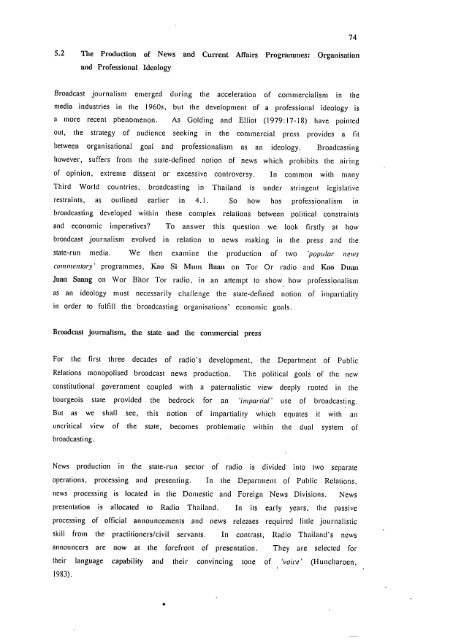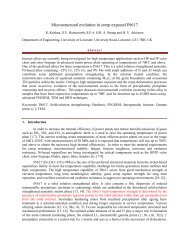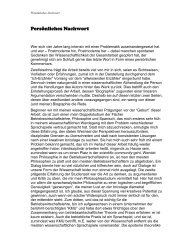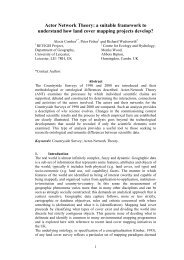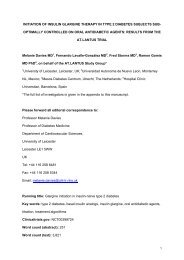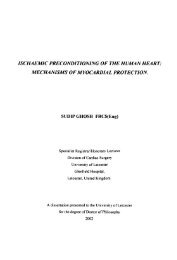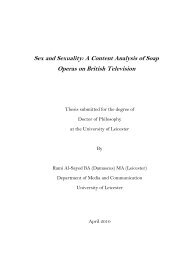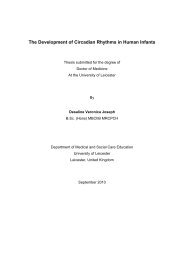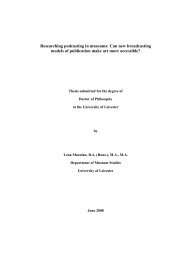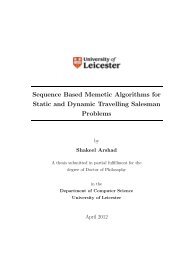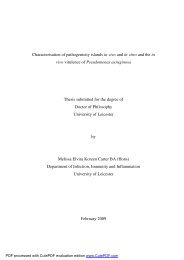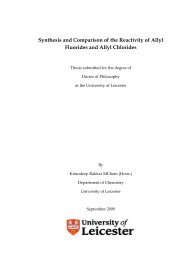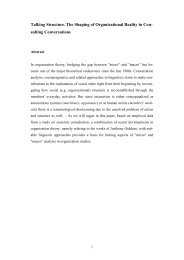iieiiei1eWrkers - Leicester Research Archive - University of Leicester
iieiiei1eWrkers - Leicester Research Archive - University of Leicester
iieiiei1eWrkers - Leicester Research Archive - University of Leicester
You also want an ePaper? Increase the reach of your titles
YUMPU automatically turns print PDFs into web optimized ePapers that Google loves.
5.2 The Production <strong>of</strong> News and Current Affairs Programmes: Organisation<br />
and Pr<strong>of</strong>essional Ideology<br />
Broadcast journalism emerged during the acceleration <strong>of</strong> commercialism in the<br />
media industries in the 1960s, but the development <strong>of</strong> a pr<strong>of</strong>essional ideology is<br />
a more recent phenomenon. As Golding and Elliot (1979:17-18) have pointed<br />
out, the strategy <strong>of</strong> audience seeking in the commercial press provides a fit<br />
between organisational goal and pr<strong>of</strong>essionalism as an ideology. Broadcasting<br />
however, suffers from the state-defined notion <strong>of</strong> news which prohibits the airing<br />
<strong>of</strong> opinion, extreme dissent or excessive controversy. In common with many<br />
Third World countries, broadcasting in Thailand is under stringent legislative<br />
restraints, as outlined earlier in 4. 1 . So how has pr<strong>of</strong>essionalism in<br />
broadcasting developed within these complex relations between political constraints<br />
and economic imperatives? To answer this question we look firstly at how<br />
broadcast journalism evolved in relation to news making in the press and the<br />
state-run media. We then examine the production <strong>of</strong> two 'popular neWS<br />
conunenlary' programmes, Kao Si Mum Baan on Tor Or radio and Kao Dunn<br />
Juan Saang on Wor Bhor Tor radio, in an attempt to show how pr<strong>of</strong>essionalism<br />
as an ideology must necessarily challenge the state-defined notion <strong>of</strong> impartiality<br />
in order to fulfill the broadcasting organisations' economic goals.<br />
Broadcast journalism, the state and the conunercial press<br />
For the first three decades <strong>of</strong> radio's development, the Department <strong>of</strong> Public<br />
Relations monopolised broadcast news production. The political goals <strong>of</strong> the new<br />
constitutional government coupled with a paternalistic view deeply rooted in the<br />
bourgeois state provided the bedrock for an 'impartial' use <strong>of</strong> broadcasting.<br />
But as we shall see, this notion <strong>of</strong> impartiality which equates it with an<br />
uncritical view <strong>of</strong> the state, becomes problematic within the dual system <strong>of</strong><br />
broadcasting.<br />
News production in the state-run sector <strong>of</strong> radio is divided into two separate<br />
operations, processing and presenting. In the Department <strong>of</strong> Public Relations,<br />
news processing is located in the Domestic and Foreign News Divisions. News<br />
presentation is allocated o Radio Thailand. In its early years, the passive<br />
processing <strong>of</strong> <strong>of</strong>ficial annou ncemeiits and news releases required little jou inal istic<br />
skill from the practitioners/civil servants. In contrast, Radio Thailand's news<br />
announcers are now at the forefront <strong>of</strong> presentation. They aie selected for<br />
their language capability and their convincing tone <strong>of</strong> 'voice' (Huncliaroen,<br />
1983).<br />
S<br />
74


